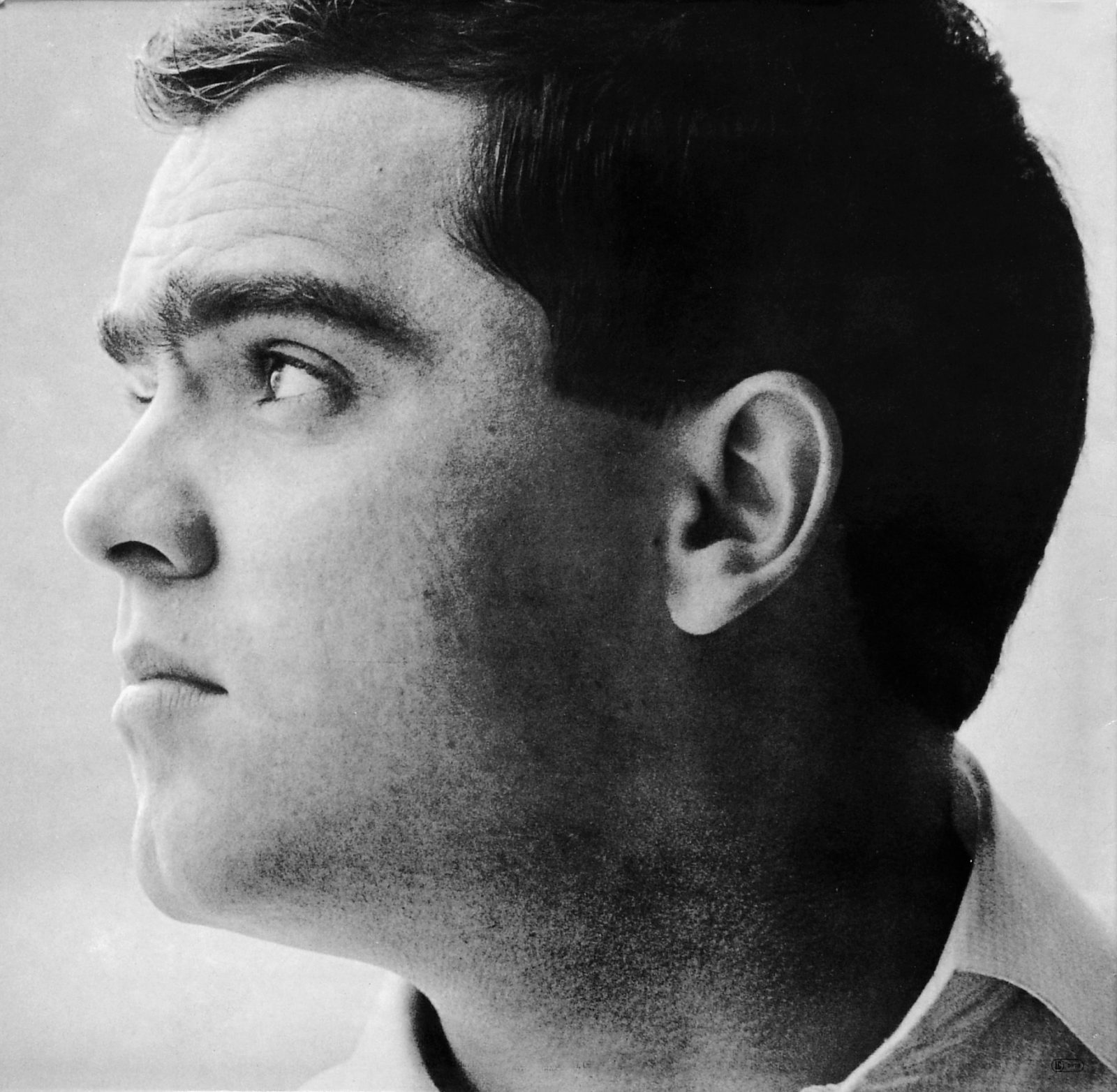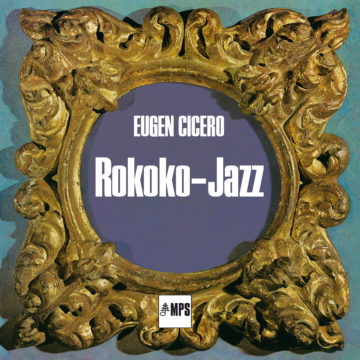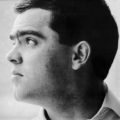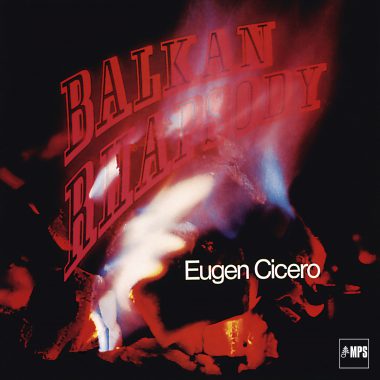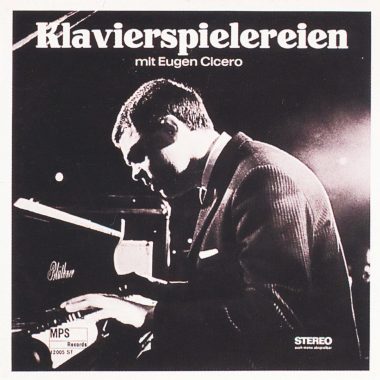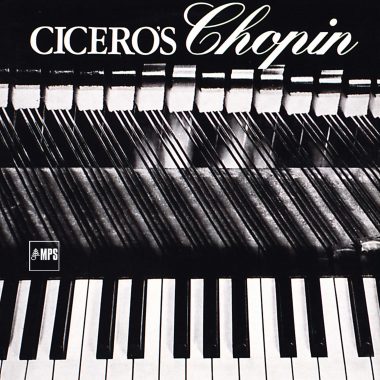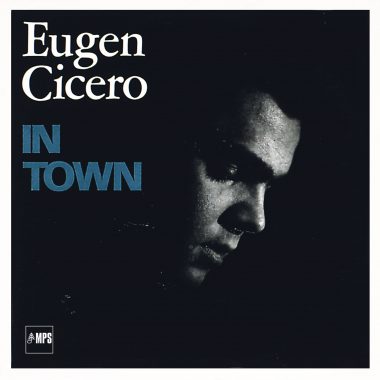Information
Genre |
Swing |
Release Date |
14.03.1965 |
Information
Rokoko Jazz is the first record that Eugen Cicero recorded for MPS in 1965, which also marked his big breakthrough with over 1 million copies being sold worldwide. With his fast-paced swing versions, Cicero proves that his nickname “Mr. Golden Hands” is truly deserved.
On October 2nd, 2020 MPS will release a reissue of Rokoko Jazz on CD (Digipak) and 180gr Vinyl. The original master tape was digitized for the audio in the usual MPS quality and refreshed for CD and LP with a subtle re-mastering. The foreword is written by the Swiss jazz drummer Charly Antolini, who not only played the drums on this album but also brought Eugen Cicero to the MPS label in the first place.
You can pre-order the album here: https://MPS.lnk.to/RokokoJazz
Liner Notes:
"Bach's Softly Sunrise": The entire Cicero is embodied in this recording and in this title. "Swinging Bach versions" are fashionable today. But from Benny Goodman's "Bach goes to town", recorded some 25 years ago, on through to everything that the Swingle Singers and Jacques Loussier do today, I don't know of a single "Swinging Bach" that speeds along with such fast-paced dynamics as this one.
Cicero does not swing his Bach because it is the fashion of the day. He swings it because his music lives from the tension between what the record industry calls "classical" and jazz. This is not only evident in "Bach's Softly Sunrise", the brilliant combination of Johann Sebastian Bach's D minor Toccata and Richard Rodger's beautiful melody "Softly as in a Morning Sunrise". This melody has often prompted baroque and counterpoint shenanigans, but Cicero not only gives it a shot of Bach; he also adds a strong pinch of Charlie Parker.
From Couperin through Johann Sebastian Bach and Domenico Scarlatti, who was born in the same year as Bach, to Karl Phillip Emanuel Bach and Mozart, our record takes you through one of the great centuries of Western music, traveling from Baroque through Rococo into early Classical.
The focus is on Rococo - the sensitive, gallant style of the 18th century, which reminds one of Nymphenburg porcelain, amorous pastorals and lavish court festivities. I have an old Brockhaus German encyclopedia from 1903. Look up the keyword “Rococo” and within that antiquated language there is everything you need to know about the music of Cicero. “The hallmark of Rococo is the dissolution into light, delicately sinuous lines... plant-like, the frame envelopes the content, entwines it like a living organism... The rhythm lifts the Rococo to a style... "
Cicero treats the compositions of these great 18th century composers with respect and awe. It rarely happens that the themes and melodies gain such clarity and contour by someone who likes to play them "faithful to the original". You can feel it particularly strongly in Cicero's version of the old aria "Have Mercy, My God" from the St. Matthew Passion and in Mozart's Fantasy in D Minor. The latter stands as one of the most successful pieces on our record... Whoever has taken piano lessons when young will have some nostalgic moments when they listen to what Cicero does with Solfeggio, a composition by Bach's son Philipp Emanuel.
However, his real name is not Cicero. As to his real name, early on, Eugen Cicero gave up hope of keeping it. Who in our neck of the woods can really pronounce that? "Ciceu", he used to imagine: "sounds something like Cicero". Well then, Cicero it is.
Eugen Ciceu-Cicero was born on June 27, 1940 in Cluj-Napoca, Romania. The four-year-old learned his first Mozart sonatinas from his mother. His brother introduced him to jazz. Adrian Ciceu is one of the most famous jazz drummers and jazz critics in Romania.
By 1950, at the age of 10, Cicero gave piano concerts on the radio in Bucharest. Aurelia Cionca, the most famous pianist in Romania, took notice of him and invited him to take lessons from her. He later studied at the National Conservatory in Bucharest.
His phenomenal pianistic technique became quickly recognized. At the age of 16, he received first prize in the Romanian national competition for young musical performers – and had to be satisfied with a certificate because he was too young to receive the official award.
Then came the big turning point. At 18 he formed his first jazz quintet with his brother Adrian Ciceu. He gave concerts in Romania and Czechoslovakia, made recordings and played on radio and television. Then his brother, who came from jazz, went to the Bucharest Philharmonic Orchestra, and Eugen, who came from concert music, had once and for all landed in jazz ....
He went to Austria and Switzerland via the GDR. There, the other musicians he had brought with him from Romania left him. Not to go home, of course, but to go to America.
And Freddy Brocksieper, who has played jazz longer than any other German-speaking musician – namely, for over thirty years, brought him to Munich and introduced him to the West German audience.
On our record, Cicero plays with bassist Peter Witte and Swiss drummer Charly Antolini. Both musicians play with the Erwin Lehn orchestra out of Stuttgart. In their combination of jazz-like freedom and professional studio experience, they form the ideal rhythm group for Cicero.
When asked about a hobby, Cicero says: "I have no hobby except the piano". Counter question: "But playing piano, isn’t that your job?" Answer: "Oh yes, I had completely forgotten..."
-JOACHIM ERNST BERENDT-
Trans. Marty Cook
Information
Genre |
Swing |
Release Date |
14.03.1965 |

